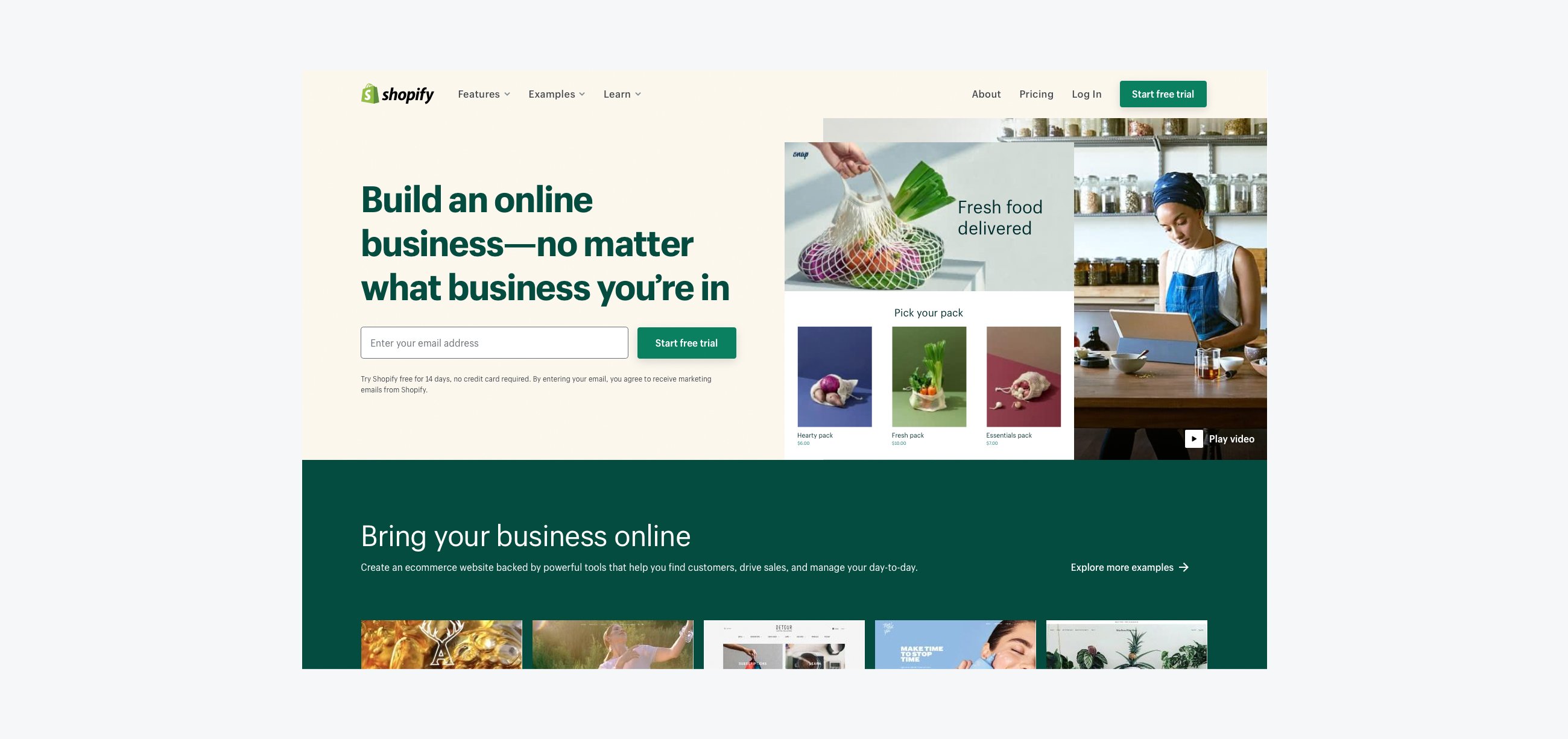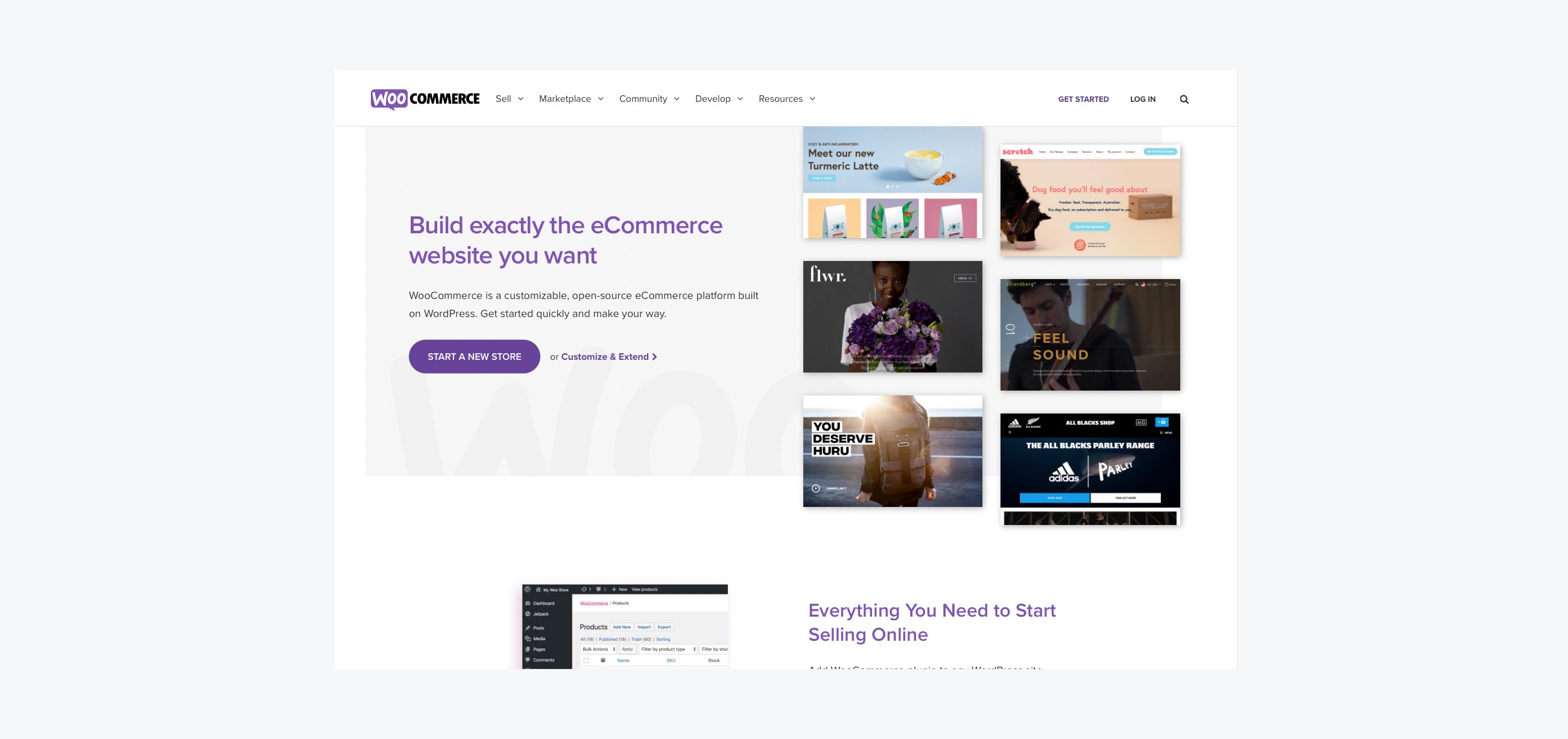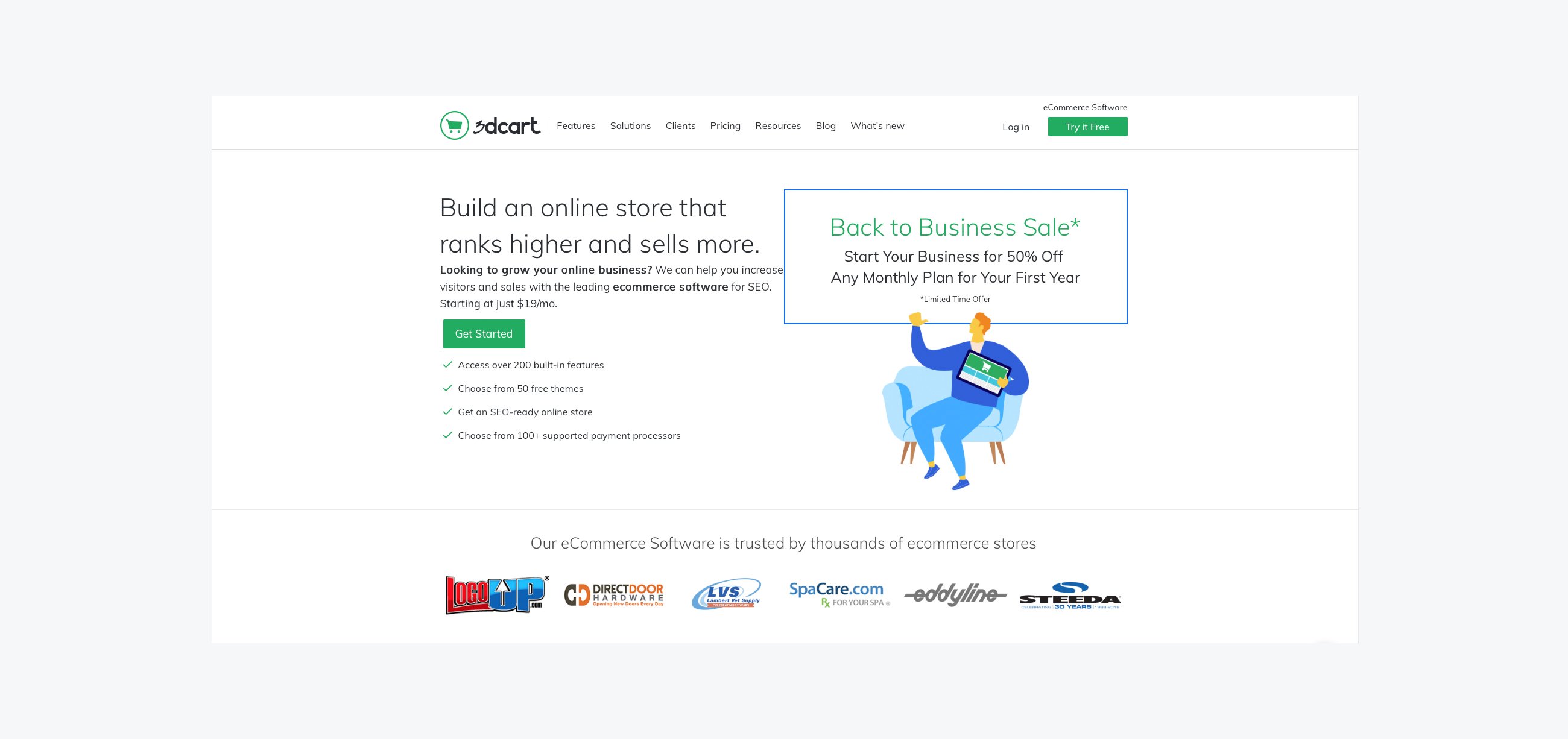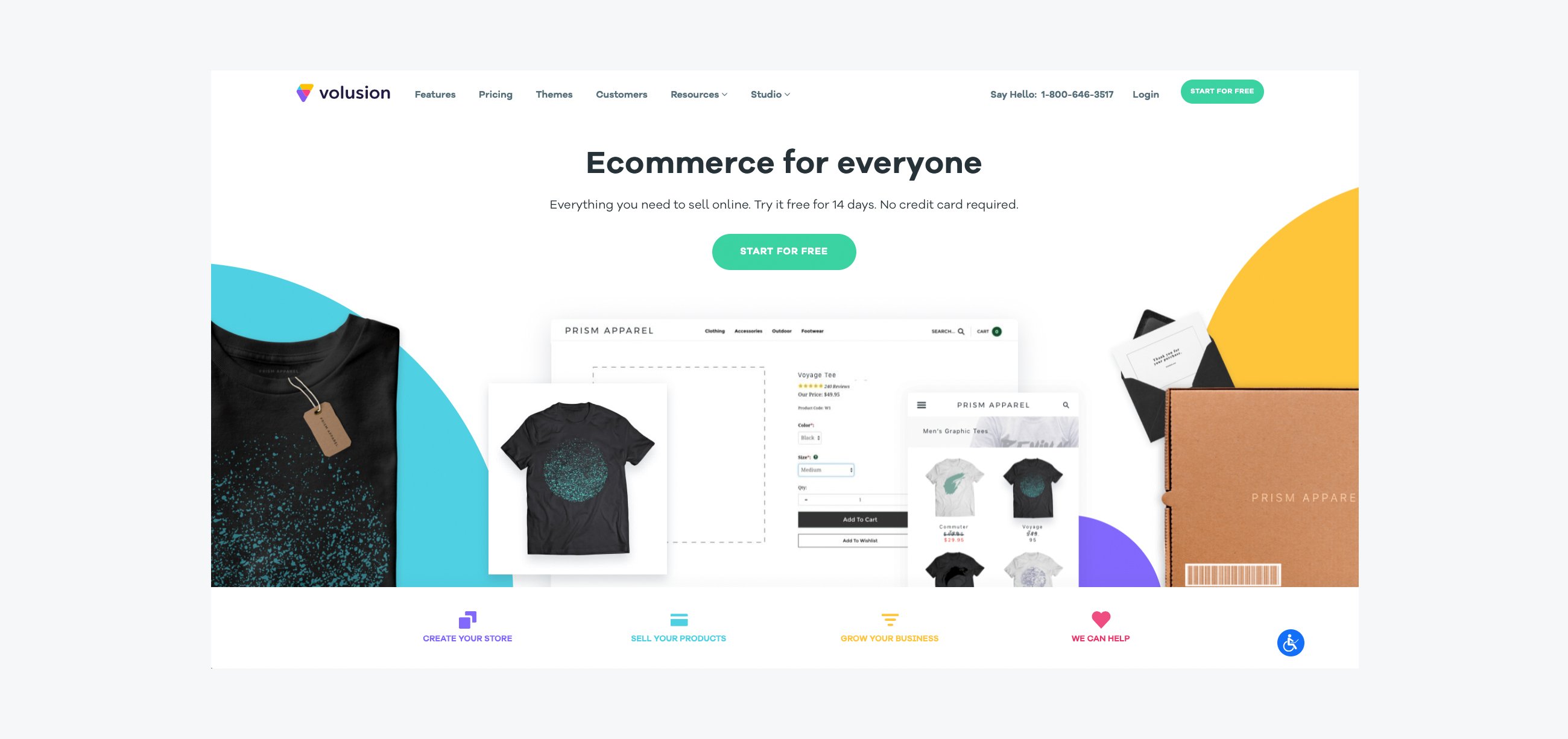eCommerce is booming. Especially now, during a pandemic, people are looking to transfer their everyday activities into the digital world. It’s a great opportunity for existing online stores as well as traditional retailers who want to grow their business. And there’s no need to build an online store from scratch (unless you’re already a big cartel and need a custom platform) – that’s what eCommerce platforms are for. But there’s so many of them. In this article we will go over the top 10 eCommerce platforms as well as their pros and cons.
Should You Use An eCommerce Platform?
Being available online is what customers expect and demand. The world has shifted towards online retail and digital transformation has never been more important. With that said, for some companies it’s not easy to just transform and offer their products or services online. And that’s why so many use eCommerce platforms. The biggest advantage is that it’s very easy to get started with a platform like this. And although you can’t customize everything, there’s plenty you can adjust. It’s also much cheaper than building a custom-made solution.
Ultimately, an eCommerce platform allows you to quickly get your product out there and does a portion of the usability optimization for you. The most popular platforms offer templates that have already been tried and tested so that there’s no conversion-killer mistakes. But, if you have a very niche target group or very specific requirements, an eCommerce platform might be a good starting point but not an end-point solution. So, here’s the top 10 eCommerce platforms that might be a good fit for your business:
1. Shopify
Shopify has exploded in the past few years and has since grown to be one of the top most popular eCommerce platforms out there. Companies like Heinz, Hasbro and The Economist use Shopify to run their online sales. Shopify has an opinion of being best for a drop-shipping business model as well as for stores that rely heavily on ads. It also offers a huge variety of add ons and third-party apps integrations as well as a POS for brick and mortar stores.
Shopify: Pros & Cons
Shopify is a top choice for first-time eCommerce owners as well as bigger businesses. The site offers excellent performance and loading time as well as quick and easy set up. The biggest game changer of this popular eCommerce platform is the abandoned cart saver feature. Unlike other platforms, Shopify offers this right from the start and that’s what makes it one of the best eCommerce platforms out there. However, the costs of add ons may rack up quickly and become costly. There’s also no option to personalize the check out experience. Additionally, if you’re looking for more advanced features, you will need a dedicated developer to help you out.
2. WooCommerce
According to their website, WooCommerce powers 28% of all eCommerce sites available. One of its biggest perks is how it can turn any WordPress site into a fully-fledged eCommerce store. It’s very easy to get started with if you’re already a WordPress user. It is used and trusted by The Spectator, Blue Star Coffee and the Five O’Clock Time Club.
WooCommerce: Pros & Cons
Because WooCommerce works with WordPress, it offers excellent SEO tools (much better than Shopify for example). It is very easy to use and there’s also a lot of customization you can do without a developer’s help. On the cons side, WooCommerce is said to crash and slow down when you reach a bigger number of customers, so you may face scaling issues. There’s also no customer service or support, because it’s just a plug in.
3. Prestashop
Prestashop is an open source eCommerce solution established in 2007. It is still one of the top eCommerce platforms to this day because of how flexible it is. It’s relatively cheap (or completely free) to start with but it does require some basic HTML and CSS knowledge as there’s no “drag and drop” site editor. You can download the software entirely for free and customize the eCommerce platform to your needs or you can use the Prestashop Ready paid version (with a free trial) if you don’t have the necessary technical skills to customize an eCommerce platform like this.
Prestashop: Pros & Cons
Prestashop’s biggest advantage is how flexible it is. You can also use it completely for free. With that said, there’s only 10 free themes on the Ready version and you need some technical skills to tweak your site as there’s no website builder or a “drag and drop” editor. The ease of use is much smaller for people who are first launching an online store and have little to no experience with any eCommerce software. There’s also a lot of limitations when it comes to integrating marketing tools and third-party apps.
4. BigCommerce
BigCommerce is one of the best platforms for eCommerce beginners. It’s very easy to get started and was created with non-technical users in mind. The starting point for this eCommerce platform is around $30. This includes some nice features like gift cards, unlimited bandwidth or checkout codes. However, you will need to pay up to get a custom SSL certificate. What people love most about this platform is how easy it is to use and how many features it has to make the user’s life easier. It’s used by companies like Pandora, Skullcandy or YETI.
BigCommerce: Pros & Cons
The biggest advantage of BigCommerce is the ease of use and that it can be used by virtually any business – from big stores to niche sellers and small businesses. It features a website builder for those without the knowledge of HTML and CSS but is also open to customization. The biggest con to this eCommerce platform is that it can get expensive if you’re running a bigger store with a high number of products.
Subscribe for exclusive access
5. 3dcart
3dcart is on this top eCommerce platforms list because it is great. It has come our in 2011 and offers unlimited storage and no transaction fees (which can rack up, especially if you sell a large number of products). However, 3dcart is not a tool for beginners. Other platforms like Shopify or the WooCommerce plugin might be a better starting point if you’ve never used an eCommerce platform like this. Their cheapest plan is $19 per month with a sales limit of 50k. 3dcart is trusted by companies like iHeartMedia LogoUp and dotmailer.
3dcart: Pros & Cons
The biggest advantage of 3dcart is the overall value you get for your money. It has a lot of features, however, there’s still no abandoned cart saver (which helps you minimize the number of customers who leave their shopping cart without making a purchase) and the free themes tend to look a bit dated and obsolete. It is not particularly easy to use for beginners but it is still one of the best eCommerce platforms if you’re looking for a great value and great performance.
6. Volusion
Volusion is definitely in the top 10 eCommerce platforms. It launched in 2002 as an eCommerce platform but has been around since 1999. It’s best known for how easy to use it is and its drag and drop website builder. It’s best for stores that offer physical products as it doesn’t offer the download-after-payment feature for digital products. Unfortunately, unlike other platforms, there’s no blog option in its features which can be a turn off, especially now, since blogs are crucial to your store and website SEO.
Volusion: Pros & Cons
One of Volusion’s best features is that even if you’ve never used eCommerce software before and have no experience, you will be able to easily start with your online platform. Their website builder provides excellent ease of use and there’s a lot of free resources to help you set up your eCommerce site. It also has nice integrations with Google, Amazon and eBay as well as some marketing tools built in. However, the lack of the blog feature makes this eCommerce solution less appealing nowadays than other platforms in this top 10 list. It is also one of the slower ones, especially with a large number of products.
7. Wix
Wix is not only an eCommerce platform. It is also like WordPress – you can also build a normal website there. It’s best for small businesses and won’t be a good choice for bigger online stores. They don’t offer a lot of SEO tools and have been known to face some optimization issues in the past. However, it might be a good choice if you’re looking for an eCommerce / website to represent your business and sell only a few products.
Wix also doesn’t offer the abandoned cart recovery feature. It does however offer an excellent website builder that’s very easy to get started and features a lot of free themes. It’s one of those eCommerce platforms that are very easy to customize and provide a modern look. They also provide excellent customer service as well as a live chat so that you can ask for help when setting up your eCommerce site.
Wix: Pros & Cons
Wix’s biggest advantage over other eCommerce platforms is their design possibilities, customer support and live chat and how easy it is to get started with their drag and drop website builder. But they don’t offer as many marketing tools and SEO features as other top platforms and aren’t the best choice for bigger online stores that rely heavily on add ons and integrations.
8. Squarespace
Squarespace is another eCommerce platform that offers an easy to use drag and drop online store builder. They offer great design possibilities but don’t have as many features as some other eCommerce platforms in this list. Their pricing starts at $18, however, you will also have to pay 3% transaction fees. Their website builder provides some ease of use but it is not a piece of cake. You still need to put some effort into it in order to have a really nice-looking online store. There’s also great shipping integrations as well as real-time shipping rates calculation from the major shipping providers like UPS and FedEx. Unfortunately, when it comes to payment processing, Squarespace only supports Stripe and PayPal, so your options are limited.
Squarespace: Pros & Cons
Squarespace does offer a free trial and a certain ease of use as well as one of the best designs available. However, there’s not many outside integrations and add ons, and if you’d prefer to use a different payment gateway than Stripe or PayPal, this might not be the best choice. You should also keep in mind the transaction fees included because they may not be the best for small businesses.
9. Weebly
Weebly is one of the top choices if you’re looking for a rather simple eCommerce platform with marketing automation tools built in. They don’t offer great SEO tools and add ons and will be the best eCommerce site choice for rather small stores. Their most basic plan is not the best suited for an eCommerce store as it doesn’t offer shopping cart customization, gift cards and inventory management. This basic plan will also limit your physical products to 25 (and you can’t sell digital products) and it comes with 3% transaction fees. If you’re considering Weebly as your eCommerce solution, then it will be best to invest in on of their other two plans – Business or Performance. Weebly offers a lot of free templates as well as some premium ones. Their website builder is quite simple to use and you can also customize your eCommerce site with HTML and CSS.
Weebly: Pros & Cons
Weebly is very easy to use and its marketing automation tools make it one of the top eCommerce platforms worldwide. However, their most basic plan is not sufficient enough for most eCommerce platforms and will not support an online store with digital products. Additionally, there’s the transaction fees to keep in mind and there’s also no SEO add ons available.
10. Magento
Magento is an Adobe-built eCommerce platform that proves to be one of the best eCommerce platforms out there. However, you will need some technical skills to reach its full potential. Companies like Nike and P&G use this eCommerce site so you know it’s one of the top platforms. Magento has a very large community of developers that are willing to help you for free with anything regarding your brand new eCommerce website. There’s also a marketplace where you can search for new tools, extensions and templates. Magento offers a free version as well as an enterprise version but both of them are highly functional as eCommerce software and offer unlimited products, shopping cart customization, payment processing. There’s also no transaction fees.
Magento: Pros & Cons
One of the biggest cons of Magento is that there’s no customer support and that you need some skills or a developer to actually get started with this eCommerce website. Their online store themes can also get really expensive. With that said, Magento offers excellent website customization possibilities as well as very strong SEO. This is the best choice is you’re looking to scale your eCommerce platform in the future and need a flexible software.
Which One To Choose In 2020?
Well, the choice is yours! Each platforms serves as a functional eCommerce website but you need to decide what matters to your business at the end of the day. Whether you prioritize customer service, payment processing, unlimited products, different payment gateway options – there’s something for you on this list of the best eCommerce platforms. Generally, open source platforms provide more freedom and customization opportunities but require more technical skills to actually develop your online store. Others may have better customer support and real time shipping cost calculation. It’s all about balancing what you prioritize in your eCommerce website with the value of each eCommerce platform.
If you’re looking for an experienced team to help you develop your online store (using an eCommerce platform or not) – contact us and let’s get your eCommerce business started!










